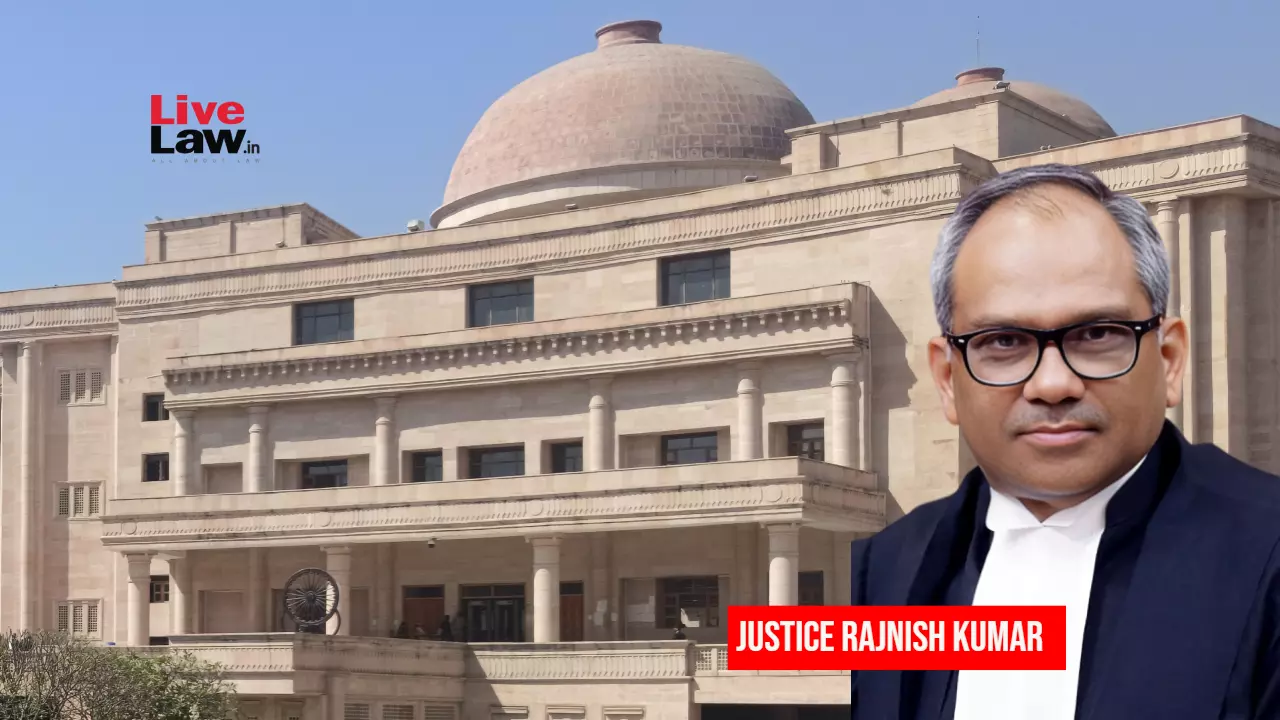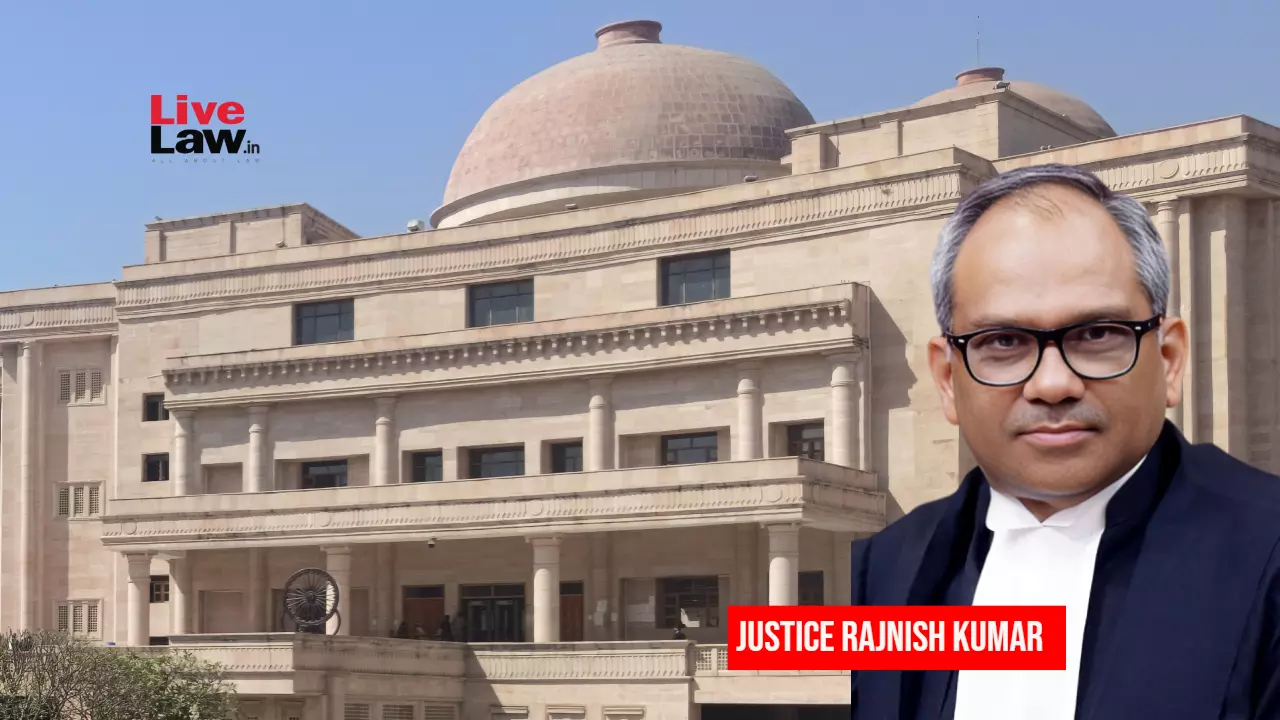Allahabad HC Rejects Cooking Fire Theory, Upholds Husband’s Conviction In Dowry Death Case


Rejecting the claim of the accused that the deceased woman had accidentally caught fire while cooking, the Allahabad High Court last week upheld the conviction of a man in a 1991 dowry death case.
A Bench of Justice rajnish kumar upheld the trial court’s judgment wherein the accused was convicted under Sections 304-B and 498-A IPC and sentenced to 10 years of rigorous imprisonment for committing dowry death of his wife.
The Court observed that all the ingredients of Section 304-B IPC were clearly established, and therefore, the presumption under Section 113-B of the Indian Evidence Act was rightly drawn against the accused.
“…signs of saving herself by the deceased has also not been found because if she would have caught fire during sprinkling seasoning for vegetables, then she would have cried and tried to save her and the family members present at home or the neighbours could have reached to save her”the Court said, while dismissing the defence theory that the fire started due to ‘seasoning’ (chaunka lagana) while cooking.
The single judge also noted that it was proved by the prosecution that the death of the deceased had occurred within seven years of marriage and was preceded by cruelty in connection with a demand for dowry.
The case in brief
As per the prosecution’s case, the deceased was married to the appellant (Jai Shankar Shukla) in 1990, about a year before the incident (dated June 11, 1991). Though dowry was given as per the complainant’s capacity, the appellant and his mother had been demanding ₹5,000 for the past two months before the incident.
When the complainant visited his daughter’s matrimonial home and expressed his inability to pay, he was threatened with consequences and not allowed to meet her. Thereafter, on June 11, 1991, a villager informed the father of the deceased that his daughter had been burnt and taken to a hospital.
When he saw the burnt dead body of his daughter, he alleged that she had been burnt by her in-laws due to non-fulfilment of the dowry demand. Following an investigation and a trial, the appellant was convicted under Section 498-A and 304-B IPC, and he was sentenced to jail term for 10 years.
Importantly, during the trial, the father of the deceased (PW-1) initially supported the prosecution’s case in his examination-in-chief recorded in 1992; in his cross-examination two years later, he retracted much of his earlier testimony.
Arguments
Challenging his conviction, the appellant-accused moved the HC, arguing that no witness, including the father and mother, had supported the prosecution’s case and that since the deceased had suffered 100% burn injuries as per the postmortem report, therefore, she could not have been in a position to speak.
It was suggested that the deceased had caught fire accidentally while preparing food, and a written report was submitted by the deceased’s father-in-law on the same day, alleging that the fire started when the deceased sprinkled seasoning in the pan, igniting the thatch roof.
It was also claimed that she was wearing a nylon saree, which caught fire, and she died en route to the hospital.
On the other hand, the Additional Government Advocate submitted that the appellant had been rightly convicted. It was argued that while the accused had stated in his statement that the burning was due to sprinkling of seasoning (Chauk lagane se), there was no evidence to support this claim.
It was submitted that since 100% burn injuries were found, and if it had been due to the burning of thatch, the deceased must have tried to save herself at the start of the fire, but there is no such evidence. It was also submitted that the presence of a kerosene smell on her body was also noted.
High Court’s observations and order
At the outset, dealing with the fact that the mother and the father of the deceased had turned hostile, the Court noted that their examination-in-chief was found to be reliable and thus, as per the settled law, their evidence cannot be discarded as a whole, and relevant parts thereof which are admissible in law, can be used by the prosecution or the defence.
The Court added that his contradictory statements, due to pressure or for some other reason, could not be denied.
On the point of presumption of guilt under Section 113B, the Court referred to the Apex Court’s 2006 ruling in the case of Ram Badan Sharma Vs. State of Bihar, wherein it was held that factors, when ingredients of Section 304B IPC are proved by reliable and cogent evidence, then the presumption of dowry death under section 113-B of the Evidence Act arises.
Now, coming to the facts of the case, the Court noted that PW-1 (father of the deceased) had admitted the demand for dowry, not only on the basis of hearsay but also from his own experience.
Though he resiled in cross-examination, his examination-in-chief was consistent with the prosecution case lodged by him. The Court also factored in that even in cross-examination, PW-1 had admitted that he was told about harassment and cruelty due to dowry demand.
Regarding the incident, the Court noted that there was no sign of seasoning (Chauk Lagana), as the wok and vegetables were found separately near the clay stove and burned thatch, and there were no signs of the deceased trying to save herself, which casts doubt on the theory of accidental fire.
Further, the Court also factored in that the information about the death was not given by any family member but by a third party, which raised a serious doubt. The Court questioned why, if the incident was accidental, the accused would avoid informing the victim’s family himself.
Against this backdrop, taking into account the accused’s conduct, non-intimation to the victim’s father, presence of kerosene, unconvincing version of accidental fire, and evidence of dowry demand and cruelty, even from hostile witnesses, the Court found the presumption of dowry death to have been rightly drawn by the trial court.
Thus, it upheld the conviction and dismissed the appeal.
Appearances
Counsel for Appellant: Ramakar Shukla, Nalini Jain, Ashish Mishra Atal, Brijesh Kumar, Manjusha Kapil, Surendra Pratap Srivastav
Counsel for Respondent: Aga rajesh kumar shukla
Case title – Jai Shankar Shukla vs. State of U.P. 2025 LiveLaw (AB) 271

